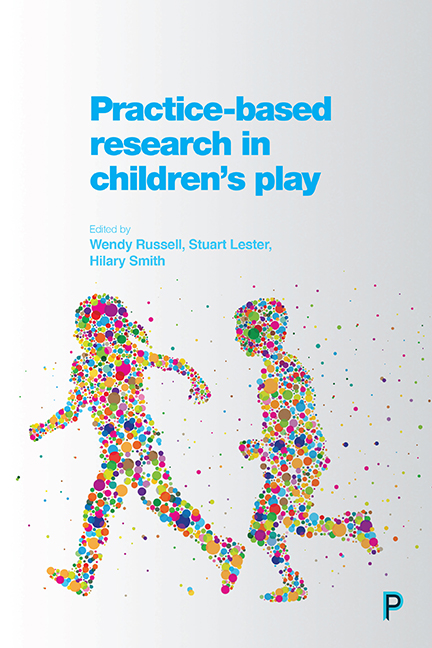Book contents
- Frontmatter
- Contents
- List of figures
- Notes on contributors
- Acknowledgements
- Foreword
- One Perspectives on play research: the practice-theory-research entanglement
- Part One Then and now: historical perspectives
- Part Two Here and there, this and that: spatial and creative perspectives
- Part Three Playfulness and wellbeing
- Closing thoughts
- Appendix: The Playwork Principles
- Index
Five - Dancing with strangers: observing play in an English urban square
Published online by Cambridge University Press: 05 April 2022
- Frontmatter
- Contents
- List of figures
- Notes on contributors
- Acknowledgements
- Foreword
- One Perspectives on play research: the practice-theory-research entanglement
- Part One Then and now: historical perspectives
- Part Two Here and there, this and that: spatial and creative perspectives
- Part Three Playfulness and wellbeing
- Closing thoughts
- Appendix: The Playwork Principles
- Index
Summary
Introduction
Public settings are complicated places, intrinsically fluid and contested constructions within which layers of value, identity and power are continually being generated. Children and young people enter this realm cloaked in the dominant narratives of the time: the ‘innocent child’ and the ‘anti-social’ youth are common tropes through which assumptions of behaviour and identity are formulated (Gill, 2007). This study adds to the debate on the provision of a child-friendly public realm and the methodologies used to represent and interpret the elusive qualities of play. The intention is to shed light on the everyday nature of play, giving attention to an ethical sensibility (McCormack, 2003) and an understanding of the public realm as a ‘collective achievement’ (Massey, 2005).
Much of lived experience is transitory and gone before it can be cognitively registered; a gesture, a smile, a call to a friend are expressions of an ongoing process of interaction and response, not separate events to be analysed in isolation. It is not possible to be conscious of all things at all times: brains and bodies filter and respond to what is most compelling, taking note and filling in the gaps in order to create a coherent and workable reality, but to ignore the pre-cognitive and non-representational nature of experience is to dismiss a fundamental aspect of personal and political relations (Thrift, 2004; Horton and Kraftl, 2006; Dewsbury, 2009).
The dominance of positivist accounts of life that imply that there is a knowable world that can be revealed through rigorous and scientific methods diverts attention away from what is difficult to describe in favour of that which can be represented. If much of lived experience happens without conscious thought, then what is required are modes of enquiry that can give attention to everyday moments as they are lived. Non-representational theory (Thrift, 2008) offers promising foundations for investigating the everyday and calls for an experimentation in methodologies, capable of disrupting conventional habits of understanding and of giving attention the emergent, ‘processually enactive’ (McCormack, 2003, p 489) nature of reality.
This study contributes to this experimentalism by engaging with creative practitioners in a research process that takes seriously subjective and embodied ways of knowing.
- Type
- Chapter
- Information
- Practice-Based Research in Children's Play , pp. 77 - 94Publisher: Bristol University PressPrint publication year: 2017



